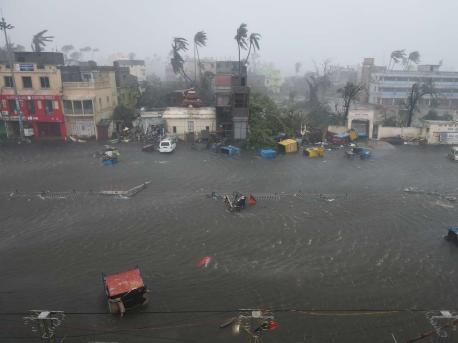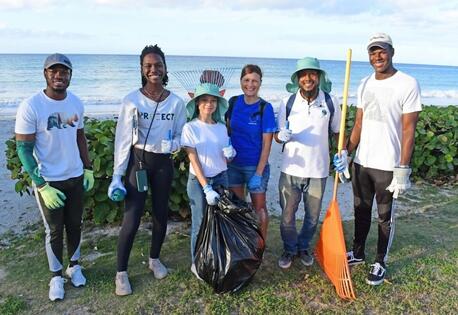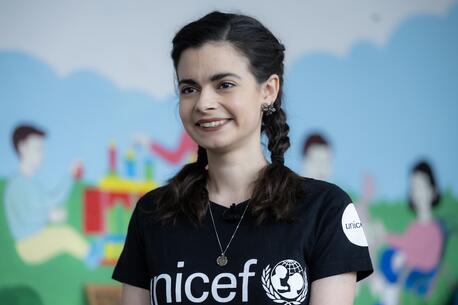
Tropical Cyclone Fani Hits India and Bangladesh
Fani put 10 million people — including 4 million children — in harm's way. UNICEF is responding to those in need.
Tropical Cyclone Fani made landfall Friday morning, May 3, near Puri, India, lashing beaches with rain and wind gusting up to 127 mph. Major evacuations protected the lives of millions in large sections of coastal India and Bangladesh.
Keep your children safe and protected against #CycloneFani.
— UNICEF India (@UNICEFIndia) May 3, 2019
Talk to them and pay attention to them. Let them explain their concerns and fears.
Remember, your family is safest when together. Always tell someone where you are going and when you will be back. pic.twitter.com/gmQthR3kdH
Early preparedness and evacuation saves lives
Fani has been described as the strongest cyclone to hit the region since a similar system struck Odisha in 1999, resulting in at least 10,000 deaths. This time, thankfully, early preparedness and evacuation minimized risks and casualties.
Stay protected against #CycloneFani
— UNICEF India (@UNICEFIndia) May 3, 2019
If you find a child living without parents or relatives, ask people close by for information. Inform the Relief Commissioner’s Office or any other govt/civil society organization to help the child.
#ForEveryChild, safety pic.twitter.com/U7SgK1B4p3
Extensive damage reported in Bangladesh
Weakening as it moved inland, Fani reached Bangladesh late on May 3. In Cox's Bazar, where 900,000 Rohingya refugees live in makeshift settlements, many shelters were blown away. Early reports indicate that more than 1,000 homes were destroyed and entire villages submerged.
Devastation in the already precarious coastal district of Bhola in #Bangladesh.
— UNICEF Bangladesh (@UNICEFBD) May 4, 2019
As #CycloneFani wages on, the safety and wellbeing of children and women is our priority. pic.twitter.com/RzeUjRNLW6
"Fortunately, the winds and rains were not as strong as initially anticipated though they have still caused havoc in many parts of the country," said Jean-Jacques Simon, UNICEF Bangladesh Chief of Communications. "Villages have been flooded and embankments broken, but risks were minimized as over a million people in vulnerable locations were safely evacuated."
UNICEF is supporting the government and partner NGOs to ensure that coastal radio stations are broadcasting lifesaving messages and warnings. Emergency supplies have been prepositioned to meet humanitarian needs of up to 100,000 people in the areas of water, sanitation and hygiene; nutrition; child protection and education. Field-based staff are responding to those in need, supporting emergency programs for affected children and families.
UNICEF helps before, during and after emergencies. Please donate now.
Top photo: A view of flooding on Grand Road one hour after Cyclone Fani hit Puri, India on May 3, 2019. © Arijit Sen/Hindustan Times via Getty Images


